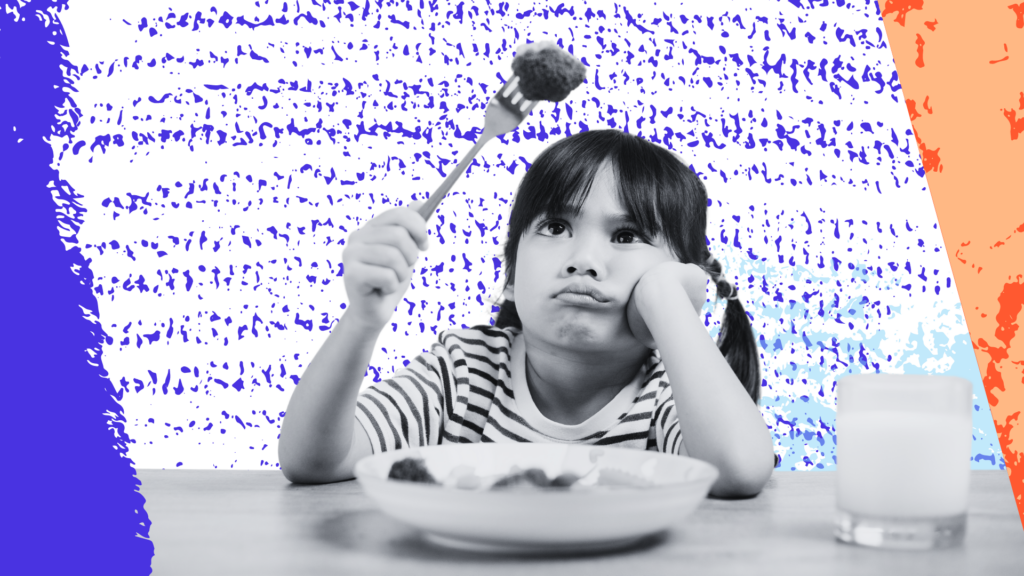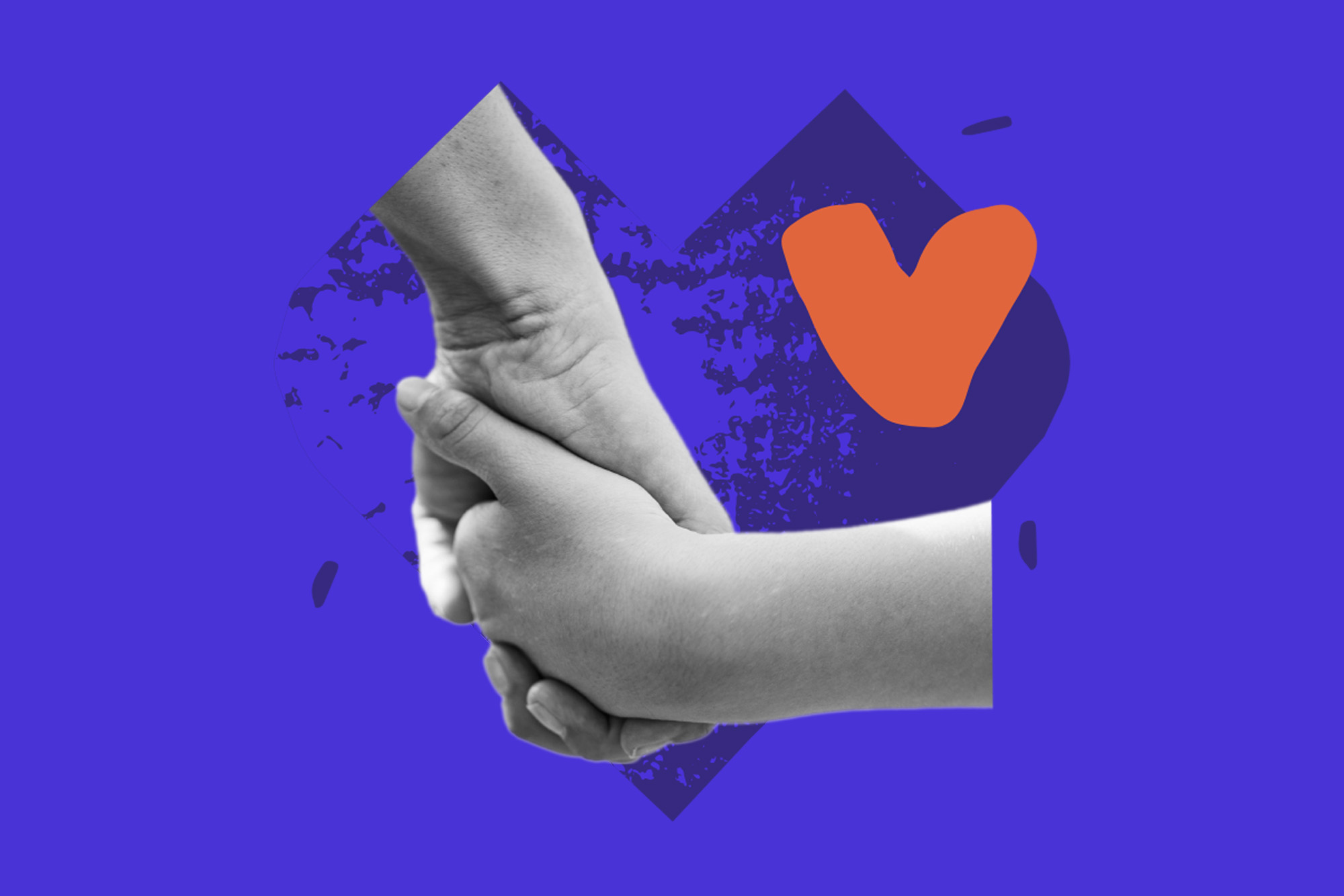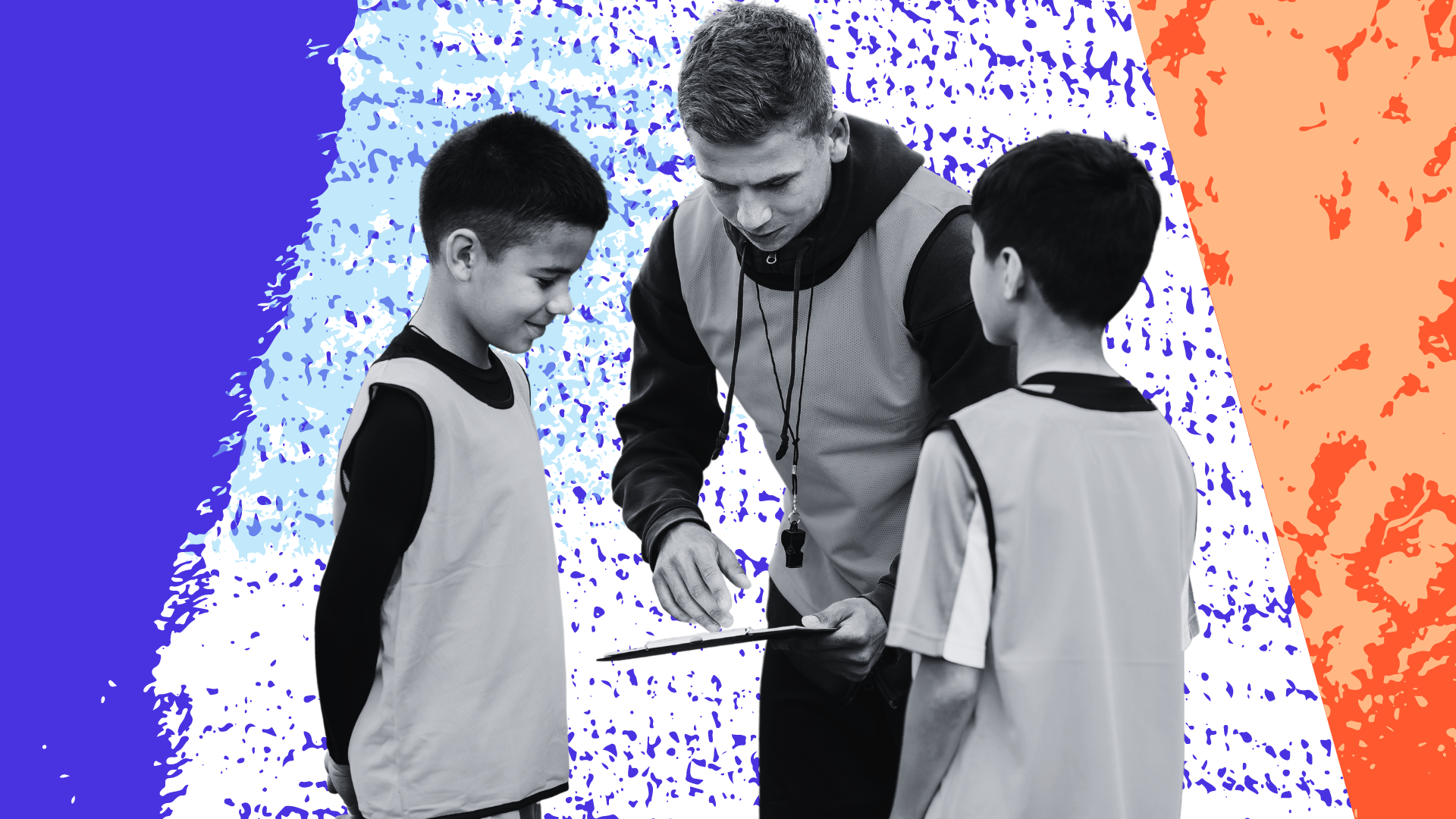What Is Diet Talk and Why It Matters for Kids’ Health
Published November 3, 2021 | Last Updated December 10, 2025

Diet talk is everywhere. It shows up at family gatherings, on social media, in TV shows, and in the tiny comments we make without thinking. It is so common that many adults are not even aware they are doing it.
But kids hear it. They watch how we talk about food and bodies. They are always paying attention, even when it feels like they are not.
And what they hear from us shapes how they see themselves.
So let’s get clear on what diet talk actually is, why it harms kids, and how small shifts in your language can make a powerful difference.

What We Mean When We Say “Diet Talk”
Diet talk includes any conversation that:
- Restricts foods or food groups
- Connects food choices to weight, shape, or size
- Labels foods as good or bad
- Praises or criticizes the way someone eats
- Sets rigid rules about what or when to eat
Examples you may recognize:
- “Carbs are so bad for you.”
- “I can’t eat that, it will go straight to my hips.”
- “All my kids do is eat junk.”
- “Let’s be good and skip dessert.”
- “I don’t eat any sweets after 8 PM.”
Comments like these often feel harmless, practical, or simply part of managing your own health. You might think, “This is about me, not my kids.”
But kids don’t hear these comments as personal preferences. They hear rules. They hear that their choices around food make them “good” or “bad,” and that their body size is some kind of scorecard. They hear messages about what they should or shouldn’t do to get approval and be “okay.” Even casual comments about your own body or diet can quietly teach them to judge themselves the same way.
“I do not have any labels. I do not call foods “good foods”, “bad foods”, or “junk food”. None of the “all or none” labels…all things are okay in moderation. Psychological health is being able to have all of it in moderation. And eating in a way that’s sustainable till you’re 90.”
– Dr. Carlin Anderson, Ph.D, LP, CMPC
How Diet Talk Shows Up Without Us Realizing It
Diet talk is sneaky. It can sound like:
- Complaining about your body after a meal
- Talking about “earning” food through exercise
- Praising someone for losing weight
- Worrying out loud about “too much sugar”
- Cutting out entire food groups to change appearance
Most of us learned this language, and this way of thinking about food and our bodies, from our own upbringing (and our parents learned it from theirs). You may have even been taught, or still feel the pressure, that being a “good parent who values health” means policing what your kids eat until they “know better,” or using your own food choices and comments to “teach them how to eat healthy.” So, of course, it feels normal.
In many families, complaining about our bodies or apologizing for what we eat wasn’t just accepted—it was a way to connect. A way to show we cared about health. A way to fit in.
But kids absorb these messages fast, and it can shape how they feel about food and their bodies long before they understand what any of it means. It can even have the opposite effect, undermining the very health we’re trying to instill, despite our good intentions
Why Diet Talk Hurts Kids
Kids want to please the adults they trust and fit into whatever their world says is “right.” So when they hear food labeled as good or bad, they often decide they are good or bad based on what they want to eat.
That pressure sticks.
Some kids start avoiding foods they genuinely enjoy (and need for a balanced diet) because they believe those foods make them “unhealthy,” or because they think changing what they eat will change their body size (and they’ve already learned which bodies get more praise).
Others begin sneaking or overeating those same foods when they feel restricted. Many start judging their bodies and comparing themselves to everyone around them. And for some, this becomes the beginning of dieting, restricting, or using food to cope.
Research shows that dieting is the number one predictor of a child going on to develop an eating disorder. That risk rises even when dieting seems “gentle” or is done with good intentions.
And this impact isn’t felt equally. Kids in larger bodies, kids of color, trans kids, kids with disabilities, and kids who experience food insecurity may feel even more shame or pressure when adults talk negatively about food or bodies. Meanwhile, kids in more “socially accepted” bodies may feel they have to maintain that size to stay loved or accepted—even when puberty and growth make body changes natural and necessary.
Kids deserve better. They deserve to feel safe around food and to learn the truth about nutrition, health, and the practices that genuinely support their well-being. They deserve to trust their bodies—and to grow up believing, without question, that they are enough.
“But some foods are healthier than others. Shouldn’t I teach that?”
Yes, some foods offer more nutrients than others. Kids can learn that. But we can teach it without the fear, shame, or judgment that diet talk creates.
Instead of focusing on which foods are right or wrong, help kids:
- Pay attention to how different foods make them feel
- Learn what different nutrients do for their bodies
- See food as fuel, tradition, connection, joy
- Understand balance instead of restriction
Life is full of long days, busy schedules, celebrations, and imperfect meals. Kids learn confidence around food when we model flexibility and trust instead of worry.
One parent put it simply: “Nutrition matters to me. But so does not giving my kids a weird complex about food.”
That balance is possible.
What to Say Instead of Diet Talk
Here are simple swaps you can use in everyday moments. They keep nutrition conversations open while removing shame.
Instead of: “That’s bad for you.”
Say: “This food gives your body quick energy.”
Instead of: “I need to work this off.”
Say: “Moving my body helps me feel strong.”
Instead of: “I shouldn’t be eating this.”
Say: “I’m choosing something that feels good right now.”
Instead of: “No more sugar. It’s too much.”
Say: “That’s all for today. We can have more another time.”
These small language shifts help kids relax around food. They remind kids that eating is not a test and their worth is not tied to their plate.
The Bigger Picture: You Matter More Than You Think
It’s hard to untangle the food and body beliefs we’ve been taught for decades. Diet culture has been the water most of us were swimming in long before we even knew it had a name. So please hear this: you do not need perfect language. You do not need to get it right every time.
What kids remember most is your tone, your modeling, and the sense that food and bodies are not something to fear. And you can offer that even if you’re still figuring out your own relationship with food. Feeling confident about food is not a prerequisite for helping your kids thrive.
Your choice to pause the diet talk, even while you’re still learning, makes a profound difference.
Every moment you choose curiosity over judgment, you help kids build confidence. Every time you skip the commentary about bodies and focus on well-being, you show them they are worthy and loved exactly as they are.
And those moments add up. They create a home, classroom, or team where kids can grow without shame.
Take the Next Step
If you want help making simple, powerful shifts in the way you talk about food and bodies, we created a free guide to support you.
Download the 3 Simple Shifts Guide and learn language that helps kids feel good in their bodies and with food.
And if you want to explore and untangle your own relationship with diets, check out What to Say for Me.


